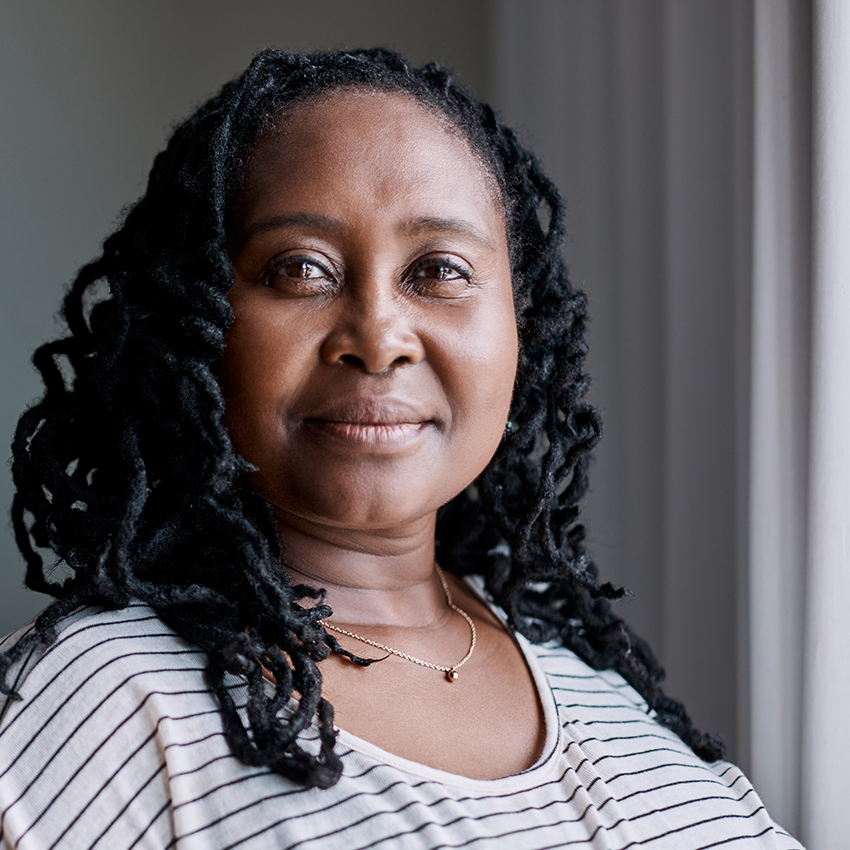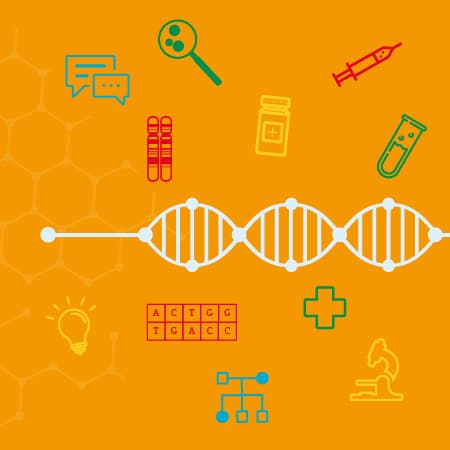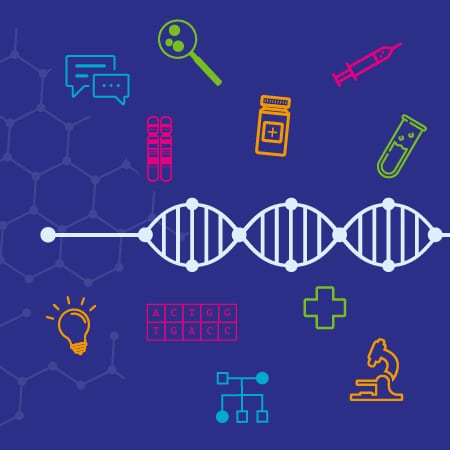In this teaching scenario, Meriel, the mother of a child with Down syndrome, explains the challenges her family faced in the first year of her daughter’s life
A female who has a child with Down syndrome describes her family’s journey – from receiving the diagnosis to the reality of caring for her daughter. Meriel also discusses the help they have received as a family, as well as mixed experiences of how others have treated them.
Read Meriel’s story below and use the teaching moments and discussion points to design your teaching session.
AT-A-GLANCE
Clinical focus: Rare disease
Nursing activities: Communication, family care, management and ongoing care
NMC platform and outcomes: 1 (1.8, 1.9, 1.11, 1.13, 1.14, 1.18); 2 (2.4, 2.7, 2.8, 2.9, 2.10, 2.11); 3 (3.1, 3.2, 3.3, 3.5, 3.11, 3.12, 3.15, 3.16); 4 (4.2, 4.3, 4.14, 4.15); 5 (5.4); 7 (7.1, 7.8)
Meriel’s story
Diagnosis
1 Having a child with Down syndrome was a shock. I became pregnant for the first time at age 32, and had not had any screening tests as my husband and I did not agree with termination. I probably naively thought that nothing would happen, but on another level, we also felt that we would accept what we got. I had no problems during my pregnancy and the baby was very active.
2 My daughter was born full term. It was a surprisingly quick labour, and due to drugs given late on, I was not very aware of what was going on. When she was born, I just remember the room being surprisingly silent. When I first saw my daughter, I commented that her eyes looked slightly oriental in shape. The medical staff said nothing. Looking back this was as it should have been: I was able to meet my daughter and spend the night with her. It was not till mid-morning the next day that a nurse came and told me what they suspected. I will always be grateful that I had the chance to know my daughter, before being told that there was something different.
3 My daughter has changed my life completely – as any child would have. I have no other child to compare her with, but the first couple of months were very difficult. It all seems a daze now. We were overcome with love for her, but also distraught that she had a condition that it seemed we could do little about, and with not much hope for the future. In those early days, we relied on what the medical profession told us, which was not much and not very positive. We were told she was at greater risk of heart defects, hearing problems, eye problems, learning difficulties, and that she would probably be short and delayed in her development. Rather dismal! We asked them how she would personally be affected and they told us they really could not say and we would have some idea after her first birthday. The uncertainty has been there from the start and still remains. I was amazed that with all the medical advances we have, there was not one drug treatment we could use.
Seeking support
4 I spent the first eight weeks frantically searching for information. I have a background of psychology and extensive research experience. We found a lot on the internet – positive and negative. After researching it, we started our daughter on supplements specifically designed to try and counteract the effects of the extra genetic material. These consist of vitamins, minerals and amino acids. There’s no definite proof, but many parents have found it useful – as we have. Having an extra copy of chromosome 21 results in a chemical imbalance which increases cell damage. The supplements try to balance the metabolic difference and improve growth and the immune system. I also believe that a healthy diet – mainly organic – is a good basis, plus omega 3 and 6 oils and the occasional probiotic. We have become used to integrating all this into her everyday food. This seemed a very conservative level of intervention and we are still frustrated at the lack to medical treatment.
5 Later on, we saw a genetic counsellor. It was really useful but also raised more questions. She told us about our slightly increased chances of having another child with a chromosomal disorder. We do plan to have other children, but now feel that we could not cope with another child with Down syndrome. We might not be so lucky to have a child who is mildly affected, and we also feel it would be to the detriment of our daughter.
Lived experience
6 Day-to-day, our daughter is just like any other child. We are fortunate that she appears to be very mildly affected. There is a recognised Down syndrome ‘look’ that many people think they know. Our daughter would appear not to be obvious’ in this respect, except to those who have experience with special needs or paediatrics. Her health is good. She had a small hole that didn’t close shortly after birth, but had by the time she turned one. She currently has fluid behind her ears and we are going to see an ENT consultant about the possibility of grommets. Our daughter is also, at 13 months, meeting all her developmental milestones. She is also tall. When I meet people for the first time, I assume that they do not know and only mention her disorder if I get to know them. I do not see the point in mentioning it as, to me, it is a label with a terrible stereotype. I want them to see her for who she is.
7 There is no doubt that there is an extra level stress to caring for a child with Down syndrome. I constantly feel that we need to do more for her but, in the long run, it wouldn’t benefit her to be our sole focus. There has also been some difficulty in our family. My mother insisted that the news of the diagnosis not reach some members of our family. To this day, they do not know. We have had many arguments, but it has not been resolved. I can only think that my mother was initially ashamed.
8 More research to date has focused on identifying Down syndrome during pregnancy. 95% of women who have a positive result then go on to terminate. I feel that the image of Down syndrome means that people make these decisions with limited knowledge. People are not aware of the vast level of variation of ability. Of course, I would choose for my daughter not to have this condition, but I feel that most people have such a bad stereotype of it that their view is very clouded.
Experience with the NHS
9 Our experiences of the NHS are mixed. When I was told the news by a nurse, it was in the ward with another woman one bed away. We really should have been told in private. We don’t have a lot of support from special needs services and, unfortunately, we haven’t found the services of much use. We went to a play and feeding therapy session and we were actually asked after a while what was wrong with our daughter. The problems we – and she – may face are of a slightly different nature to those some might expect with a child with Down syndrome. With no obvious identifying facial features and no sign of delayed development, we are looked upon as not really having many problems, but she has a label she cannot remove. I know it will affect the way people treat her and what they expect of her. It has now been suggested by a number of health professionals that our daughter may have a rare form of the condition called mosaic Down syndrome. This means she may have less extra genetic material, and may be less affected.
10 We have an excellent general health visitor. She keeps in contact and compares my child to any other, giving an honest opinion. That’s what we have asked for. We need to know where there may be any problems beginning to emerge and then we will do anything we can to treat it. Going to the GP has become strange. Our daughter has very good health, but on the two occasions I have had to go, they seem to feel the need to make some comment once the consultation is over. One implied that I should have had prenatal testing and then had a termination. The other appeared pitying.
Final thoughts
11 We’ve found out that there is a lot we can do to help our daughter reach her full potential, as you would with any other child, and that there is hope for the future. The debate between nature and nurture has not been resolved. Yes, the extra genetic material brings extra problems, but it’s how you react that makes the difference. My daughter has a much more positive future than those who are neglected and abused.
Educator touchpoints
Teaching moments
Paragraph 1 | What is the genomic basis of Down syndrome and what are the associated clinical features?
Paragraph 5 | What is a genetic counsellor?
Paragraph 9 | What is meant by the term mosaic? How does this relate to how Meriel’s child is affected by her condition?
Discussion points
Paragraph 2 | How would you approach communicating this sensitive information, especially considering the parents had no indication prior to the birth of their daughter?
Paragraph 3 | Explore the concept of uncertainty. Often the implications of a genomics diagnosis are not black and white.
Paragraph 4 | What are the advantages and disadvantages of families looking for support outside of care offered, especially if this is not always backed up by conclusive evidence?
Paragraph 6 | What are the pitfalls of making assumptions about a patient based on their diagnosis?
Paragraph 7 | Why might family members feel ashamed? How could you support the delivery of this information?
Paragraph 8 | Consider the lived experience of the patient and the family and why is it important not to have preconceived ideas. What is ‘different’ for some is normal for others.
Paragraph 8 | How can negative perceptions regarding labels associated with genetic conditions impact on a family?
Paragraph 9 | How should this information have been communicated by the GP?
Further learning
FOUNDATION KNOWLEDGE
We explore how genomic information is passed from parent to child, and cell to cell
30 minutes
Tips and tools for communicating with patients about genomics
30 minutes





